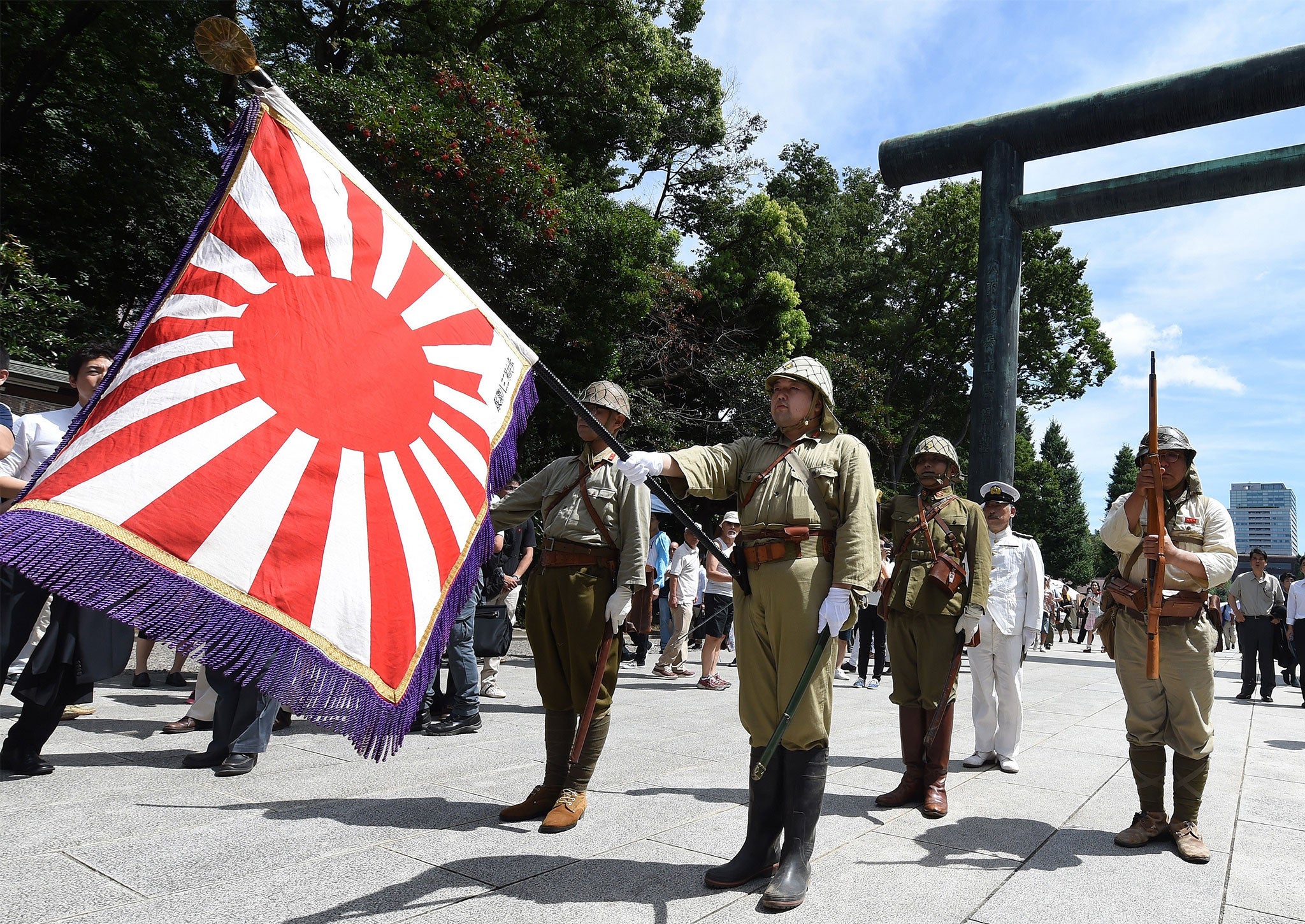The Nobel Peace Prize should not be awarded to the people of Japan
They might have overseen 67 years of peace, but their nomination obscures a much more hawkish reality

With some 128m nominees up for the gong, the competition for this year’s Nobel Peace Prize will be a heated affair. Among those hoping for their name to be called out in Oslo on October 10 are Edward Snowden, Vladimir Putin, Uruguay’s pro-cannabis president José Mujica, and the entire population of Japan.
Affable and relaxed as the Japanese generally are, one might legitimately ask what they’ve done to merit the honour. The answer is rather convoluted.
It begins in early 2013 with the efforts of a homemaker from southeast Japan to get a nomination for Article 9 of the Japanese Constitution – the clause that notoriously denies the country the right to wage war.
Told by the Norwegians that only people or organisations are eligible for the prize, Naomi Takasu recast her campaign for this year’s competition by designating the Japanese people themselves as the nominees. Against a rising tide of remilitarisation in Japan, she hopes to highlight the preciousness of a document that has seen the country through almost seven decades of peace.
It may seem crazy, but the campaign is admirable for a number of reasons. Given that the Japanese constitution was cobbled together in a few days in 1947 by a team of overworked American intellectuals, it has proved remarkably durable – it has not been amended once since its enactment.
Article 9 has remained consistently popular with the majority of the Japanese people, vaunted as a shining emblem of the country’s newfound pacifism in the wake of its shattering defeat. Most encouragingly, Takasu’s tireless lobbying is evidence that Japan’s historically weak civil society is growing in self-confidence.
And yet anybody who’s ever followed Japanese politics will know that this document has done as much to foment conflict as it has to keep the peace. First of all, it is simply not fit for purpose. Although it renounces war, the wording of the article is ambiguous enough to leave open the possibility that Japan is still entitled to defend itself against military attack.
Governments have been quick to exploit the loophole: a unified self-defence force was set up in 1954 and continued to expand so that, by 2012, Japan’s military expenditure was the fifth largest in the world. In July, Prime Minister Shinzo Abe officially “reinterpreted” the constitution in order to permit collective self-defence – i.e. the right to aid a friendly country under attack. Article 9 isn’t so much a shackle on belligerency as an elastic band for Japan’s increasingly hawkish governments to play with.
Drafted by Americans and ridden with ambiguity, Article 9 is neither truly pacifist nor truly Japanese. By promoting a simple kind of pacifism for the future, it has enabled the Japanese people to disengage, with minimum pain, from their past. Its defenders insist that it at least has the virtue of having secured peace for 68 years – a period that has seen the Americans hopscotch from one devastating war to the next. Leaving aside the possibility that peace would have resulted anyway from postwar Japan’s economic and political arrangements with the West, this argument begs the question: what kind of peace?
Japan’s dispute with China over the Senkaku Islands has brought the region to the brink of war. At the same time, Tokyo notes with alarm the increasingly bellicose rhetoric coming out of both South and North Korea. Its relations with its neighbours are complex, and these governments all undeniably engage in populist Japan-bashing. But underlying these tensions is the Japanese government’s notorious reluctance to discuss and apologise for its abominable behaviour on the continent in its days of empire.
Pacifism must be built on the recognition that war is never justified. But in Japan’s case, an imperfect constitutional pacifism has been substituted for proper reflection on its own wartime experience. This selective amnesia finds its most alarming expression in the language of today’s neo-conservatives, such as Abe, who flatly deny some of Japan’s worst crimes - such as the mass rape of Korean, Chinese and Philippine women.
Nationalism is on the rise across the country and support for the revision of Article 9 is at an all-time high. To an increasing degree, the Japanese Constitution cannot be said to reflect the principles of the Japanese people.
This is why they should not be awarded the Nobel Peace Prize on October 10. Article 9 of the constitution is flawed and highly contentious, and its contribution to lasting peace in the region is debatable. Hope for real peace can only begin with an unconditional apology by the Japanese government for the atrocities committed up to and during the country’s last ever war. That said, Article 9 would still make a worthier winner than Putin.
Join our commenting forum
Join thought-provoking conversations, follow other Independent readers and see their replies
0Comments